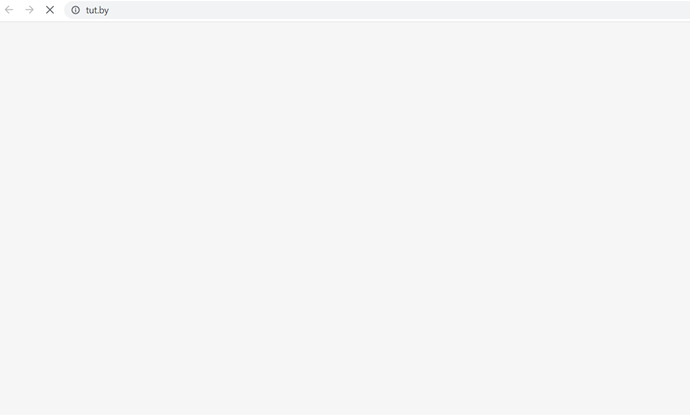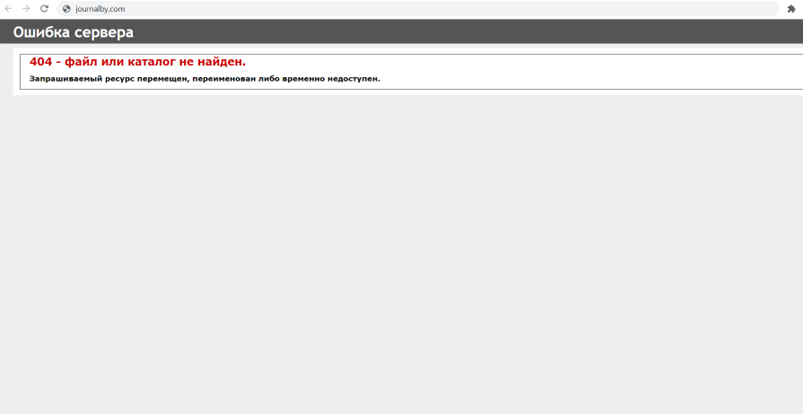Freedom of Speech or «Extremism»? Lukashenko’s ongoing crack-down on independent media in Belarus
Attention has shifted to Russia's aggression in Ukraine, while little is known about the human rights violations in Belarus. This article highlights five Belarusian media whose editors or entire outlets were declared extremists by the state.
In 2021, Belarus ranked 158 out of 180 countries in the World Press Freedom Index. This Index is an assessment of press freedom in almost all countries of the world and is compiled annually by the non-governmental organization "Reporters Without Borders"1. Alongside Myanmar, Reporters Without Borders named it as one of the two big new prisons for media personnel and recognized it as the most dangerous European country for journalists. This article highlights five Belarusian media whose editors or entire outlets were declared extremists by the state.
For 28 years, Alexander Lukashenko has been ruling the country with a hard hand and Russia as his closest partner. The authoritarian head of state does not allow fair elections in Belarus. In 2020, after rigged elections, he entered his sixth term, which made people take to the streets to protest. The rallies, however, were violently dispersed. At the same time, the regime began to restrict freedom of speech more and more by applying arbitrary interpretations of such terms as "extremism", "extremist materials" and "terrorism". More than 100 journalists have been detained; 37 media workers and their family members are still in prison2.
Olga Loiko and Elena Tolkachiova, the journalists from TUT.BY – once the most popular independent media in Belarus – were declared "terrorists" by the KGB for "inciting hatred" and "calling for sanctions and other actions aimed at undermining state security". KGB was the main security agency in the USSR. After the collapse of the latter, the name remained in use in the Republic of Belarus, where it stood for the chief government agency which carries out internal security, foreign intelligence, counter-intelligence and secret police functions. In October 2022, Ljudmila Chekina, TUT.BY’s former CEO, and Marina Zolotova, its editor-in-chief, were also added to the list of "terrorists".
By October 2021, 270 NGOs had been closed and 13 mass media outlets labelled as "extremists", according to the UN Human Rights Report. The same verdict has been passed on over 100 Telegram channels. Administrative and criminal charges are pressed on their subscribers or users sharing links to them in social media (with a maximum penalty of 7 years imprisonment). As of October 13, 2022, 1,345 persons have been regarded as political prisoners – 1,345 times higher than in 2019, as stated by the 'Viasna' Human Rights Centre.
Now the regime is silencing the last critical voices. Every day, people are intimidated, arrested and tortured. However, repressions against independent media are not something which started in Belarus after the latest election campaign in 2020: Lukashenko has been attempting to eliminate free press and the freedom of speech, assembly and expression since the moment he came to power in 1994. One of the first shocking cases of persecution was related to cameraman Dzmitry Zavadsky, who disappeared in 2000. Before his abduction, the man had repeatedly received threats on the phone. Zavadsky’s body was never found.
Zavadsky's colleague, Pavel Sheremet, was also doomed by his profession. In 1994-1995, Sheremet had been the presenter and producer of "Prospekt", a weekly analytical programme on Belarusian television. In 1997, Sheremet was one of the spokespersons and signatories of "Charter 97", a pro-democracy movement based on a manifesto calling for an end to the "violation of basic human rights and freedoms by the government of President Alexander Lukashenko". In 2016, Sheremet was killed when a car bomb exploded in Kyiv.
One might think that by leaking independent media, the Russian and Belarusian propagandists are the only ones who can disseminate information on their channels. But that is only formally the case. The level of digital literacy in Belarus is much higher than in the neighbouring countries. Since 2009, the percentage of Internet users has increased from 24% to 60%, making it the second most popular form of news consumption, while the level of trust in state media is traditionally low: only 30%. Belarusians are adept at using VPNs, "virtual private networks", a digital system which allows the user to access online content which is banned in their territory. People can hide their real public IP address and "tunnel" the traffic between their device and the remote server to access the banned media.
The biggest problem of the crackdown on independent media in Belarus is not the lack of information for its own population, but for the international public. Attention has shifted to Russia´s aggression in Ukraine, while little is known about the human rights violations in Belarus, which are so widespread that they could be called an "invisible war" against the people of Belarus by dictator Lukashenko.
TUT.BY – Most popular Belarusian news portal
TUT.BY was the leading independent mass media in Belarus. The national record was hit in May 2020 (during the campaign for collecting signatures for presidential candidates) when the site was accessed 176 million times.
Founded in 2000, TUT.BY was managed by entrepreneur Yuri Zisser, with its staff including about 200 employees (more than 70 just in Minsk). The media’s name comes from the word "tut" ("here" in Belarusian), which implies that the focus is primarily on local events; however, its agenda also included hard news, analytical long reads on foreign and domestic affairs, interviews with opinion leaders, soft news, etc.
In 2021, all of TUT.BY's offices were raided by the police and 15 media personal, including editor-in-chief Marina Zolotova, were put in a pre-trial detention centre. So far, two people associated with TUT.BY’s case are still in prison: Marina Zolotova and Ljudmila Chekina, TUT.BY's former CEO.
In August 2021, the court restricted access to TUT.BY and later the media was recognized as "extremist". Since July 8, 2021, part of the former TUT.BY team, already in forced migration, has continued to operate as a new independent platform, Zerkalo.io, which acts as a partial copy of the portal. In 2022, Zerkalo.io was also recognized as "extremist".
Наша Ніва/Nasha Niva: the oldest Belarusian weekly newspaper
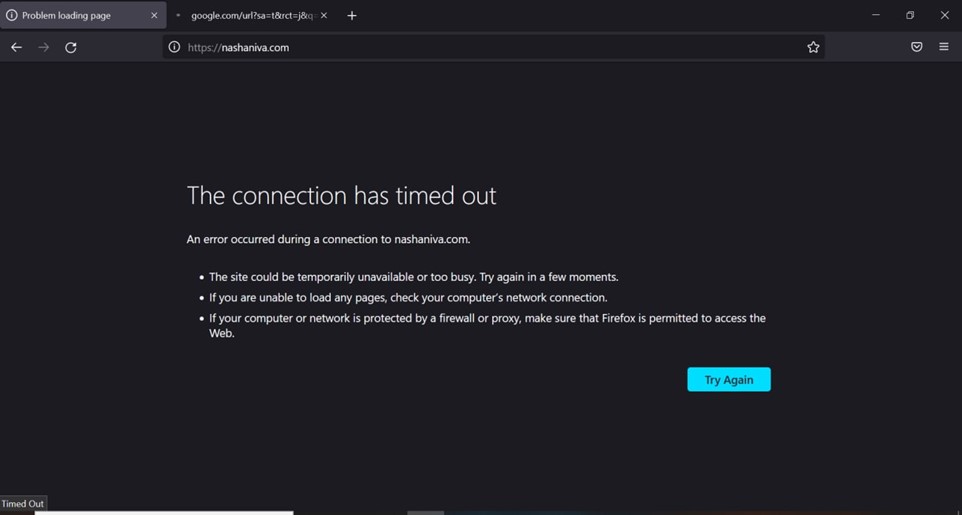
'Nasha Niva' is one of the oldest Belarusian weekly newspapers and the most popular media in the Belarusian language, a feature traditionally perceived as a sign of opposition in the country. Nasha Niva is translated from Belarusian as "our field" and was taken from a poem by Belarusian poet Yanka Luchyna. The timeline of the media included two periods: 1906-1915 and 1991-2021. The online version (www.nn.by) appeared in 1997.
Back in the 1910s, every printed issue consisted of a number of sections, among which was a digest of the latest political events in Belarus, Lithuania and Russia, as well as a section on life in the city and the countryside, feuilletons, readers' feedback, recent literary works in Belarusian, personal ads, etc. After its re-launch in 1991, Nasha Niva became a key media aimed at the consolidation of Belarusians as a political nation.
On July 8, 2021, the newspaper's website was blocked. Nasha Niva's Editor-in-Chief, Jahor Marcinovich, and Marketing Department head Andrej Skurko were detained, their apartments and Nasha Niva office searched. In January 2022, the Ministry of Internal Affairs declared the media "an extremist formation". Two months later, Marcinovich and Skurko were sentenced to 2.5 years in prison for an estimated material damage of 10,000 Br (3,000 USD). The media can be accessed only outside Belarus.
Radio Free Europe/Radio Liberty
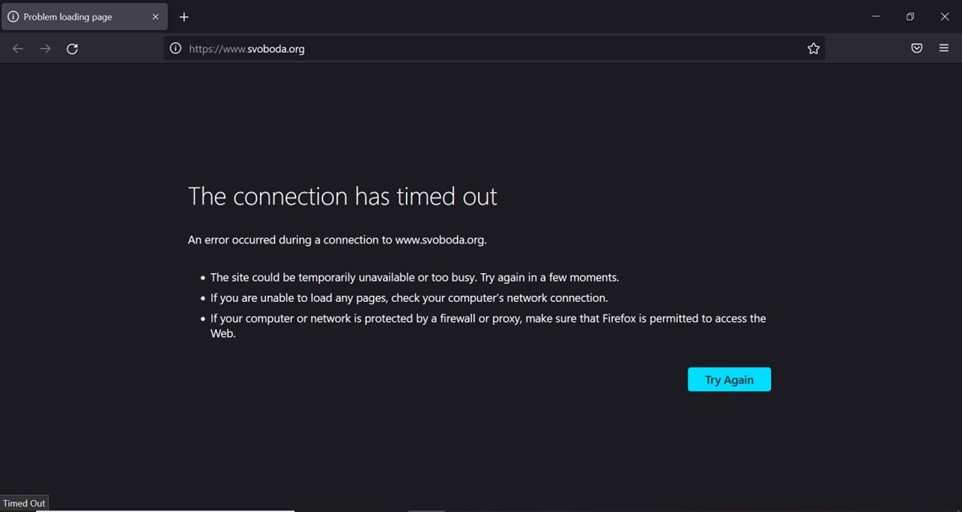
"Radio Free Europe/Radio Liberty" is an American government-funded organisation operating across Eastern Europe, Central Asia, Caucasus, and the Middle East, in the countries where, as it says, "the free flow of information is either banned by government authorities or not fully developed". In Belarus, the media was launched in 1954 (when the country was still one of the Soviet republics) under the official name of 'Радыё Свабода'; the language of publication is Belarusian.
In 2021, the Ministry of Internal Affairs of Belarus announced that all the information products of Radio Liberty’s Belarusian service were regarded as "extremist materials". Now the site can only be accessed outside Belarus. Two media workers whose activities related to Radio Liberty were given prison terms: freelance journalist Andrey Kuznechik was sentenced to 6 years in jail on extremism charges, and blogger and media consultant Ihar Losik to 15 years. Losik was convicted of organizing mass rioting and inciting hatred at the end of a 173-day trial, the longest ever held in Belarus.
Belsat/Belsat TV
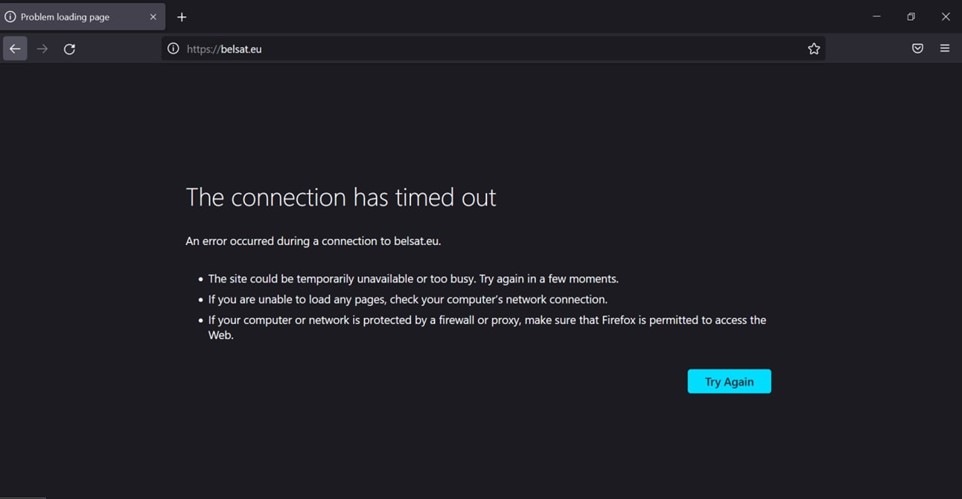
'Belsat' is a Polish free-to-air satellite TV channel aimed at Belarus. The media also operates as an Internet portal and has profiles on most social media and YouTube. Since its launch in 2007, Belsat's application to be registered in Belarus has officially been refused four times. Deprived of accreditation, its journalists faced constant persecution while working in the country.
After the 2020 elections, 'Belsat' journalists were frequently detained; their arrests included the confiscation of equipment. Seven arrestees were hospitalized. On February 18, 2021, Belsat journalist Katsyaryna Andreeva and camerawoman Darya Chultsova were accused of "organizing and preparing actions which grossly violated public order" when they streamed a rally in Minsk and sentenced to two years imprisonment. After having served her term, Chultsova was released, while Andreeva received another fabricated sentence, this time for 8 years for "high treason". In 2021, Belsat's content was declared extremist; the site cannot be accessed from Belarus.
Беларусский Журнал/journalby.com: "A journal about everything that matters for Belarus"
'Belaruski Zhurnal' was an independent online media started in 2017 by Andrey Aliaksandrau, a media manager, journalist and former Deputy Director of the independent Belarusian News Agency 'BelaPAN'. "A journal about everything that matters for Belarus" was the slogan of this resource, which promptly highlighted its wide focus on social, political, economic, and cultural issues of nation-wide importance. The politics of the portal were shaped mainly by Aliaksandrau, who commissioned freelancers to prepare features on burning issues and invited opinion leaders to give in-depth interviews.
In 2020, Aliaksandrau and his partner, sociologist Iryna Zlobina, were involved in the work of 'BY_help', a crowd-funding platform aimed at assisting the victims of Lukashenko's regime to pay administrative fines imposed for taking part in protests. In January 2021, both Aliaksandrau and Zlobina were detained and charged with "training and other preparation of persons for participation in public actions seriously violating public order, as well as the financing and other aiding of such actions". For more than a year, they were held in custody without trial and, on October 6, 2022, sentenced to 14 years in jail (for Aliaksandrau) and 9 years (for Zlobina), respectively. Apart from the above-mentioned articles, they were charged with "high treason", a verdict frequently given during the so-called "purge trials" of the USSR in the 1930s. 'Belaruski Zhurnal' ceased to exist.
1: Russian report by Reporters Without Borders: "ROUND-UP OF JOURNALISTS DETAINED, KILLED, HELD HOSTAGE AND MISSING IN 2021" https://rsf.org/sites/default/files/bilan_2021_ru_fin.pdf
2: List of political prisoners in Belarus https://prisoners.spring96.org/en
The Author
More articles of the Author


